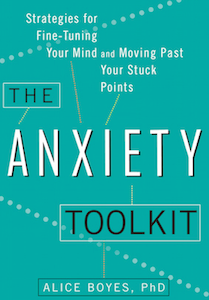Stress
4 Ways to Deal with a Horrible, No-Good, Really Bad Day
What to do when everything is going wrong.
Posted July 27, 2015

We've all had days that involve a cascade of things going wrong: Your car breaks down, you wait two hours at the doctor's office, a nonsensical policy change is announced at work, you sit on your glasses, and you start making dinner and realize you're missing an essential ingredient.
Here are four ways to cope when annoyances accumulate and begin to weigh you down.
1. Set an intention to be gentle with yourself.
When you're feeling battered around by the winds of luck, you're going to need some self-nurturing. Set an intention that you're going to be kind to yourself while you're waiting for the universe to start dishing out some kindness again.
2. Treat yourself.
A dose of positive emotion will increase your resilience during stressful days. Know yourself well enough that you have a short mental (or written) list of simple things you enjoy that reliably boost your mood. Examples:
- Buying a food you like but that you don't buy often. This could involve anything from a trip to your favorite food truck to buying yourself a bag of cherries at the store.
- Getting a foot massage on the way home from work.
- Buying a nice bath product, or just using something you already own.
- Dropping into the library on the way home from work, or downloading a new novel for your Kindle.
As a self-test, try to come up with five things now that reliably boost your mood. They need to be simple and under your control (e.g., "sunny days" isn't going to work since you can't personally create one of those.) If you find this hard, note whatever you can and add to it when something pops into your mind.
3. Get something small done that's on your own agenda.
Positive mood comes from a combination of pleasure and a sense of mastery (feeling you're competent and can get things done). These both go out the window on bad days because having a run of bad luck usually feels frustrating, demoralizing, and out of control.
Find something you can get done that will ensure the day isn't totally unproductive. It's a skill to be able to identify quick mastery tasks that feel achievable no matter what else you have going on. The more you practice, the better you'll get at it. Examples:
- Putting a hook on your wall so that you don't keep losing your keys.
- Dividing a big bag of junk food into single-serving bags so you don't overeat.
- Finally backing up the precious photos or videos that are on your phone.
- Testing/changing the batteries on your smoke detectors.
- Anything else that gives you a sense of basic competence and helps you regain a feeling of control.
4. Recognize the impact of stressful events.
When I worked as a therapist, clients would frequently overlook or underestimate the impact of stressful events and frustrations on their mood. It's a lot easier to cope with one isolated incident than it is to cope with a series of blows that come in quick succession. If you're feeling down or overwhelmed, it can help to recognize that many of the causes of your stress are temporary, one-off events, or random incidents of bad luck.

There are lots more practical tips like these in my book and in my other PT articles.
Dr Alice Boyes is author of The Anxiety Toolkit (Perigee/Penguin Random House, 2015).
Subscribe to my blog articles and receive the first chapter of the book free.
Twitter: @DrAliceBoyes


